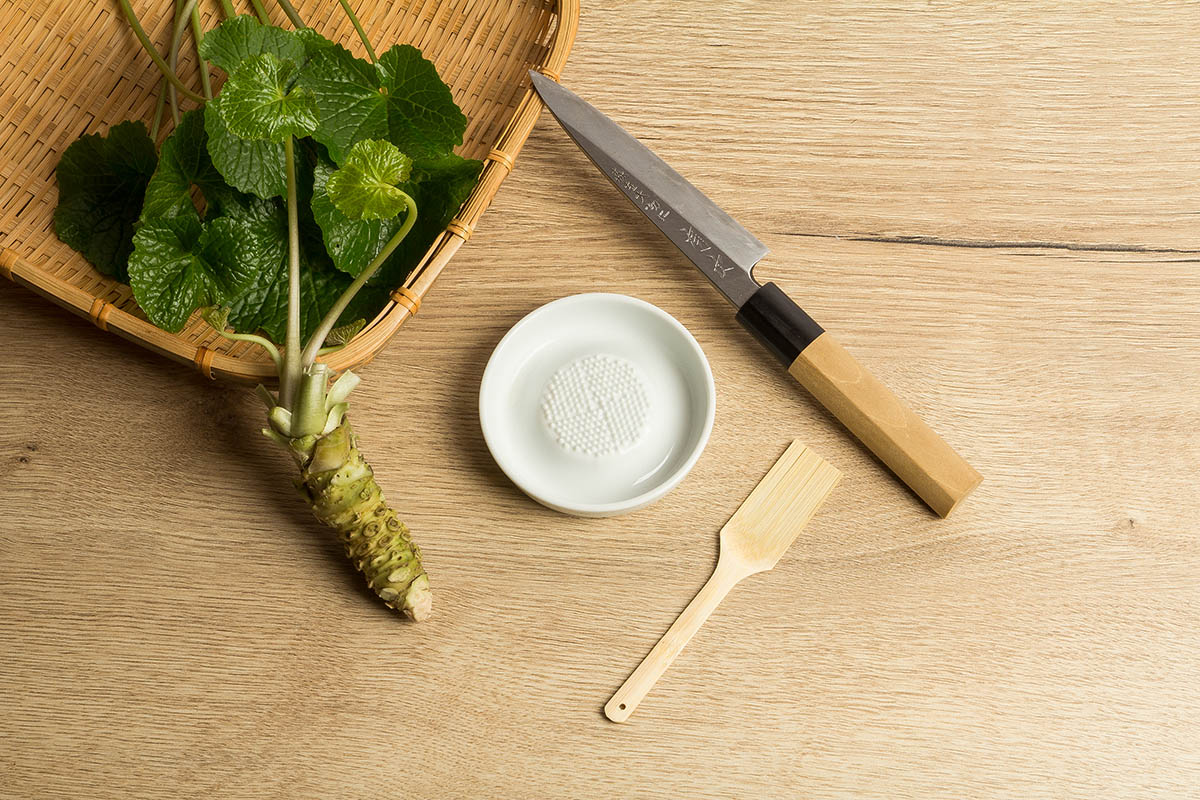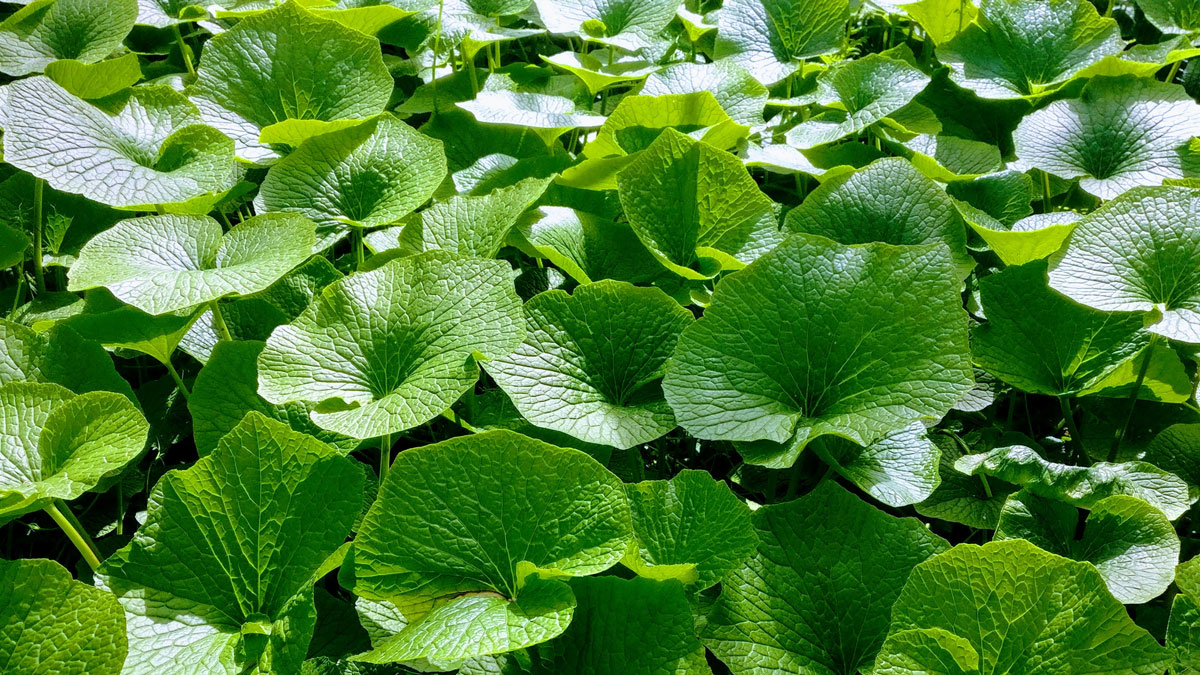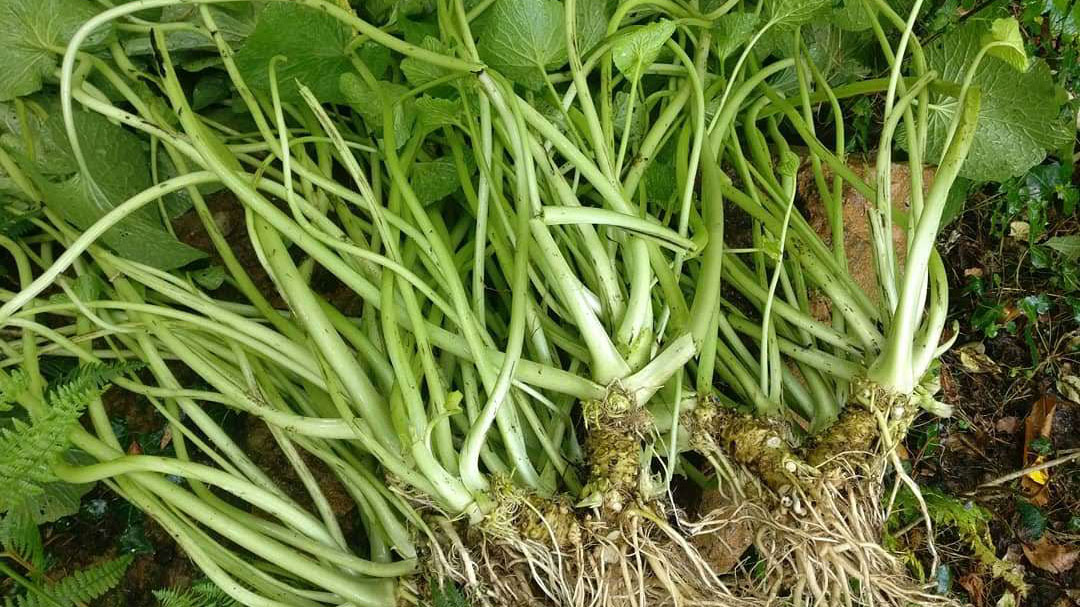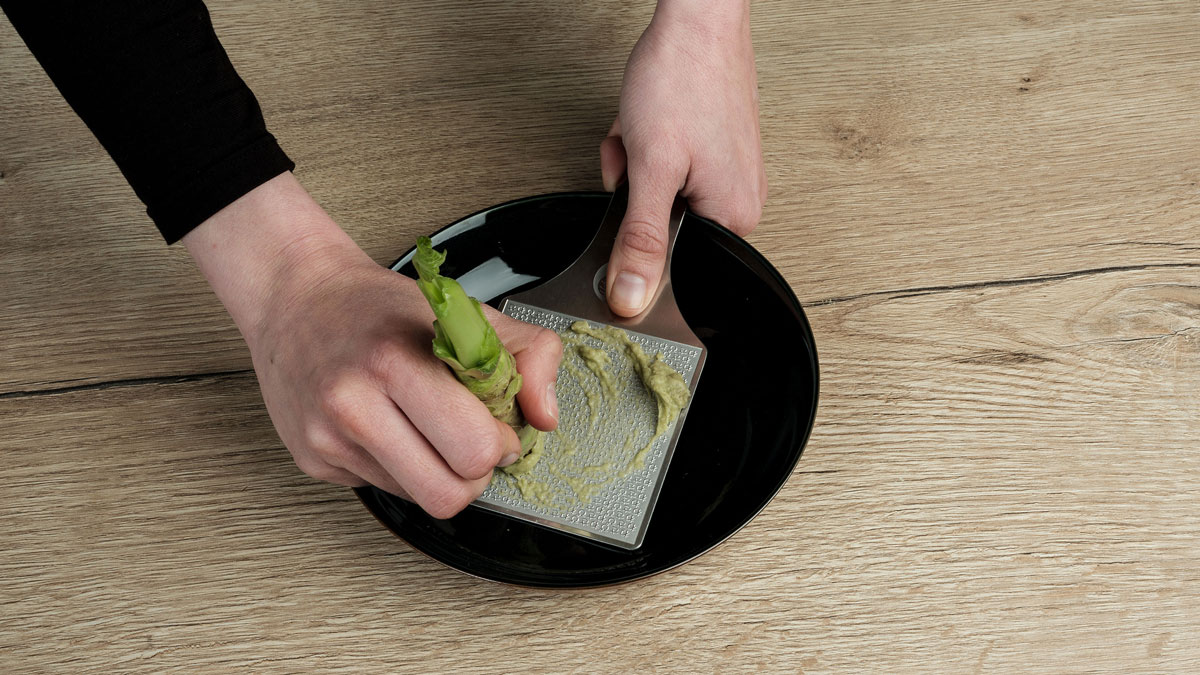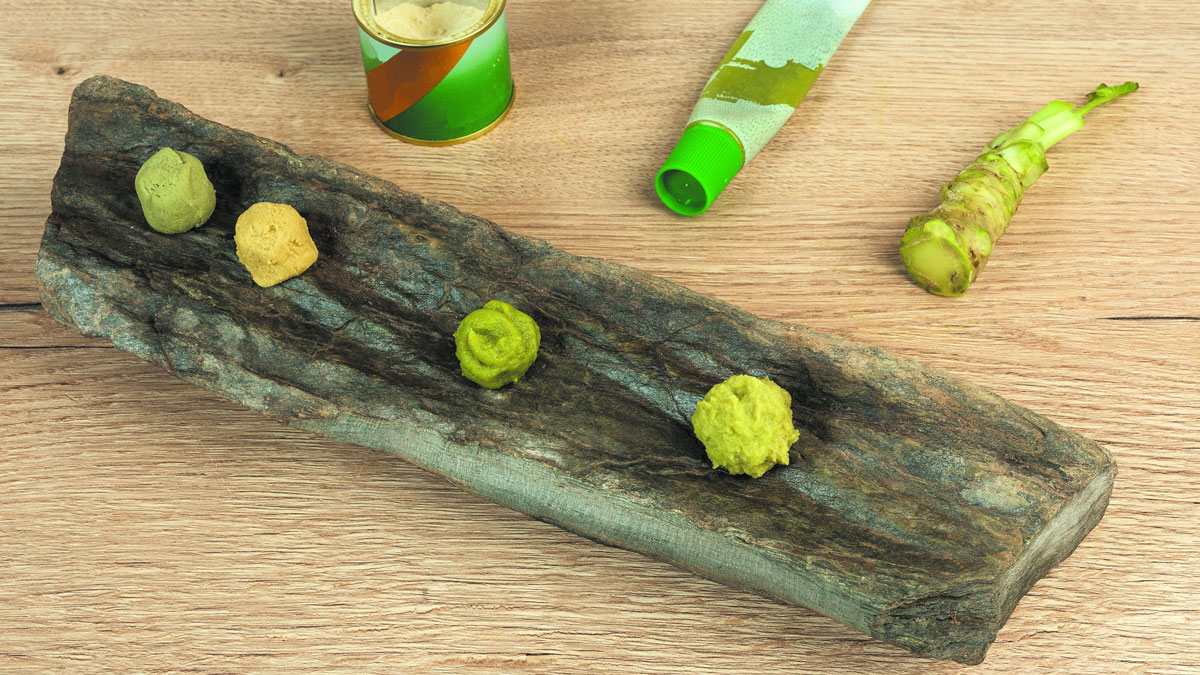Fresh wasabi is one of the emblematic condiments of Japanese cuisine. It is obtained by grating the trunk of the wasabi plant (Wasabia japonica), native to Japan. It is part of the brassicaceae family (Brassicaceae), like mustard or horseradish. In Japanese cuisine, it usually accompanies sushi, sashimi, soba or any other dish that contains fish and fresh vegetables. It is also very common as a companion to Wagyū, or other quality meats.
Wasabi has been used for thousands of years for its antimicrobial, antifungal, and antiparasitic properties. Its growth, of more than two years, is one of the most complex in the world and very few crops have prospered outside of Japan. The balance of sun, shade, temperature and humidity in our environment provide the ideal conditions for the growth of the plant, with the help of the pure and crystalline water of Montseny.
The real wasabi paste is obtained by grating the trunk on a special grater. In this process, natural isothiocyanates are released, which provide a spicy and fresh aroma as it rises through the nostrils, which quickly dissipates in the mouth, leaving a sweet and refreshing taste. Sensory evaluation experts speak of flavors reminiscent of parsnip and celeriac.
The imitation processed paste, which is commonly marketed and served, is a horseradish, mustard and additive-based substitute, containing only a token amount of wasabi.
The spicy turns out to be a defense system of the plant and, although the rhizome is the most desired element, the whole plant is edible; in fact, the leaves and flowers are also highly appreciated in gastronomy. Wasabi leaf is another delicacy of this unique plant. Very good both raw, as in tempura or blanched, it retains its wasabi flavor and that characteristic touch of spice. The wasabi flower is the softest part of the plant, the same flavors, but more subtle, sweet and of course… with a little bit of spice! The culinary uses are very similar to the leaf, adding its infinite decorative possibilities.
Nutritional and medicinal properties
Regarding nutritional properties, wasabi is rich in fiber, vitamins (B6 and C) and minerals (Calcium, Magnesium and Phosphorus). Wasabi contains the same isothiocyanates as other members of the Brassica family. This compound is widely used in medicine for the study of fighting cancer.

